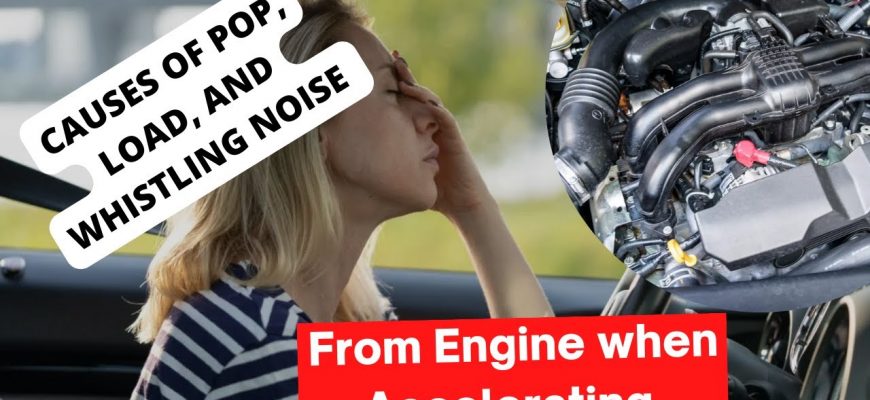Have you ever experienced a mysterious whistling sound while accelerating your car? If so, you’re not alone․ Many drivers often encounter this perplexing phenomenon, and it can be both unsettling and confusing․ This article aims to unravel the mystery behind those unexpected whistling sounds, offering insights into their causes and potential solutions․
What Causes Whistling Sounds?
Whistling sounds in cars during acceleration can arise from various sources․ Understanding these sources is crucial for both safety and vehicle maintenance․ Here are some common causes:
- Air Intake Issues: One of the primary reasons for whistling sounds is related to the air intake system․ A loose or damaged air intake hose can create a whistling sound as air is drawn in at higher speeds․
- Vacuum Leaks: A vacuum leak in the engine can lead to a whistling noise, particularly during acceleration․ This occurs when air enters the engine through unintended gaps, affecting its performance․
- Turbocharger Whistle: If your vehicle is equipped with a turbocharger, the sound could be a normal part of its operation․ Turbochargers compress air to increase engine efficiency, often producing a characteristic whistle․
- Exhaust Leaks: A leak in the exhaust system might also create a whistling sound, especially noticeable during acceleration․ This could indicate a more serious issue that requires immediate attention․
- Wind Noise: Sometimes, what you perceive as a whistling sound could simply be wind noise caused by the aerodynamics of the vehicle․ This is especially true for cars with certain designs or modifications․
When to Seek Professional Help
While some whistling sounds may be harmless, others could signal underlying issues that require professional attention․ Here are some indicators that it’s time to consult a mechanic:
- If the sound is accompanied by a decrease in performance or power․
- If you notice any warning lights on the dashboard․
- If the whistling persists regardless of speed or driving conditions․
- If you experience any changes in fuel efficiency․
Preventive Measures
To avoid whistling sounds and potential problems in the future, consider these preventive measures:
- Regular Maintenance: Schedule regular check-ups to ensure all components of your vehicle are in good condition․
- Inspect Hoses and Seals: Regularly check air intake hoses, vacuum lines, and seals for wear and tear․
- Listen Carefully: Pay attention to unusual sounds while driving․ Early detection can prevent more significant issues down the line․
Whistling sounds during acceleration can be alarming but understanding their causes can help you address the situation effectively․ Whether it’s a simple air intake issue or something more serious, being proactive about your vehicle’s health is essential․ Always prioritize regular maintenance and don’t hesitate to seek professional help when necessary․ Your car’s performance—and your safety—depends on it․










I found this article to be super useful! The advice on when to seek professional help is especially important for safety.
Very informative! It’s nice to see such clear explanations of potential issues. I’ll be checking my air intake system soon!
Great read! I never knew that wind noise could be mistaken for whistling sounds. This info will definitely help me troubleshoot my car better.
This article was incredibly helpful! I had been hearing a whistling sound in my car and wasn’t sure if it was serious. Now I know what to look for!
I appreciate how detailed this article is. The section on turbocharger whistles was particularly enlightening for me as a car enthusiast!
Fantastic insights! I’ve experienced a whistling sound before and now I feel more equipped to address it. Thanks for sharing!